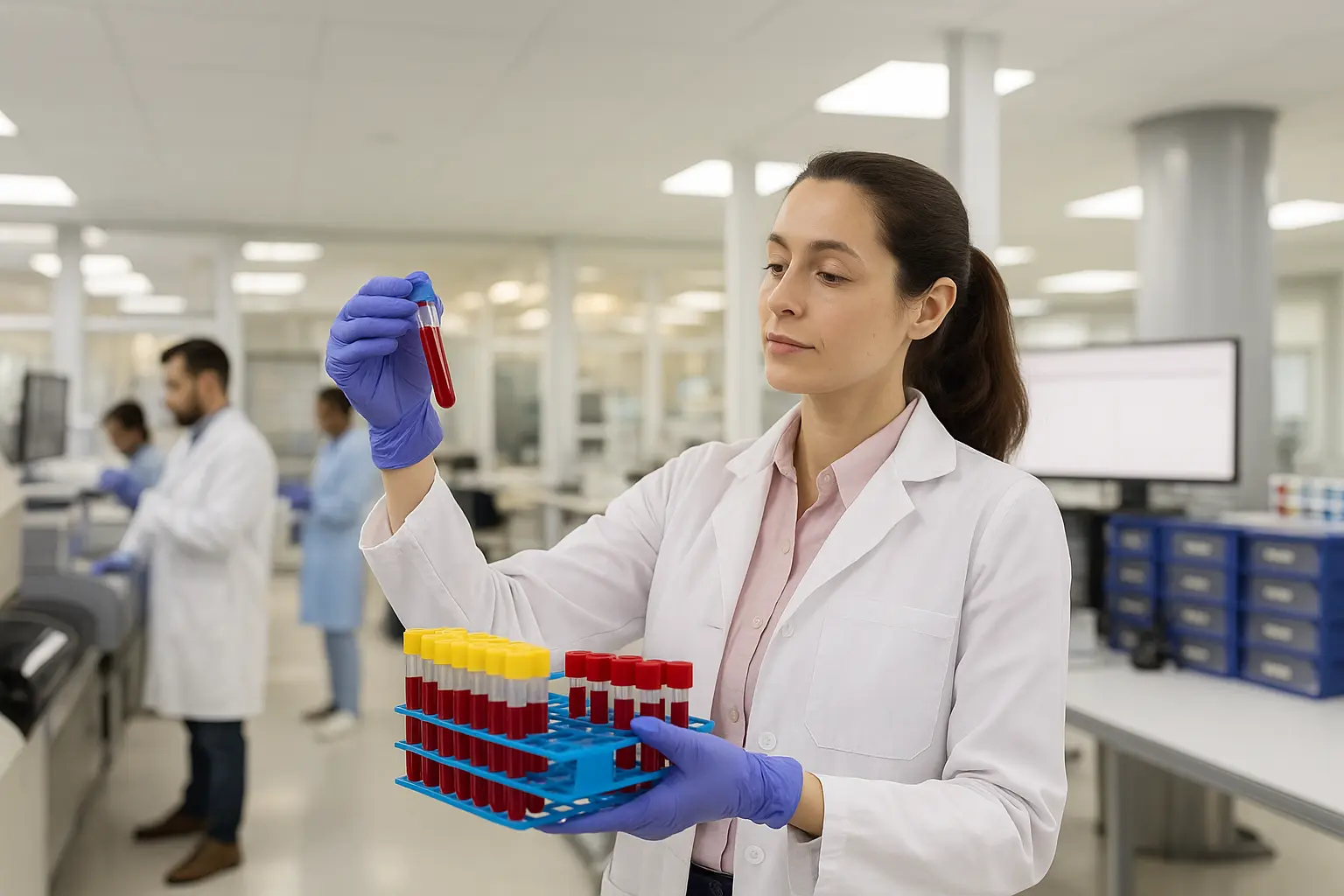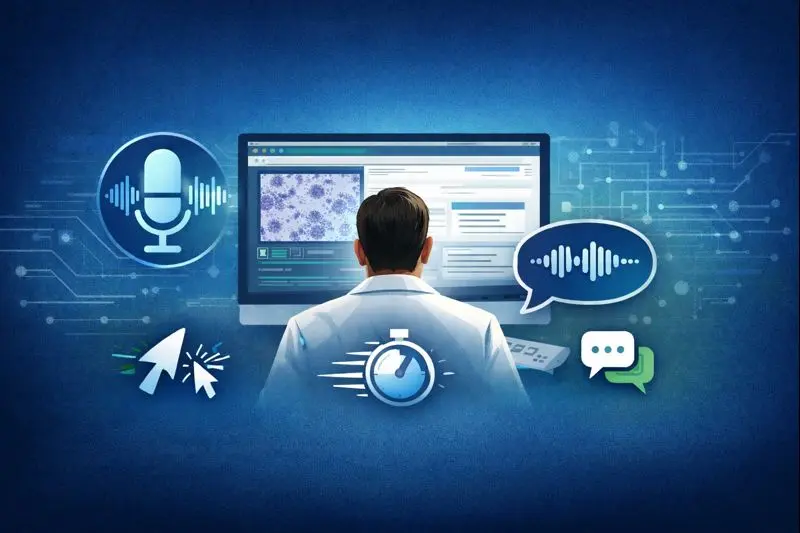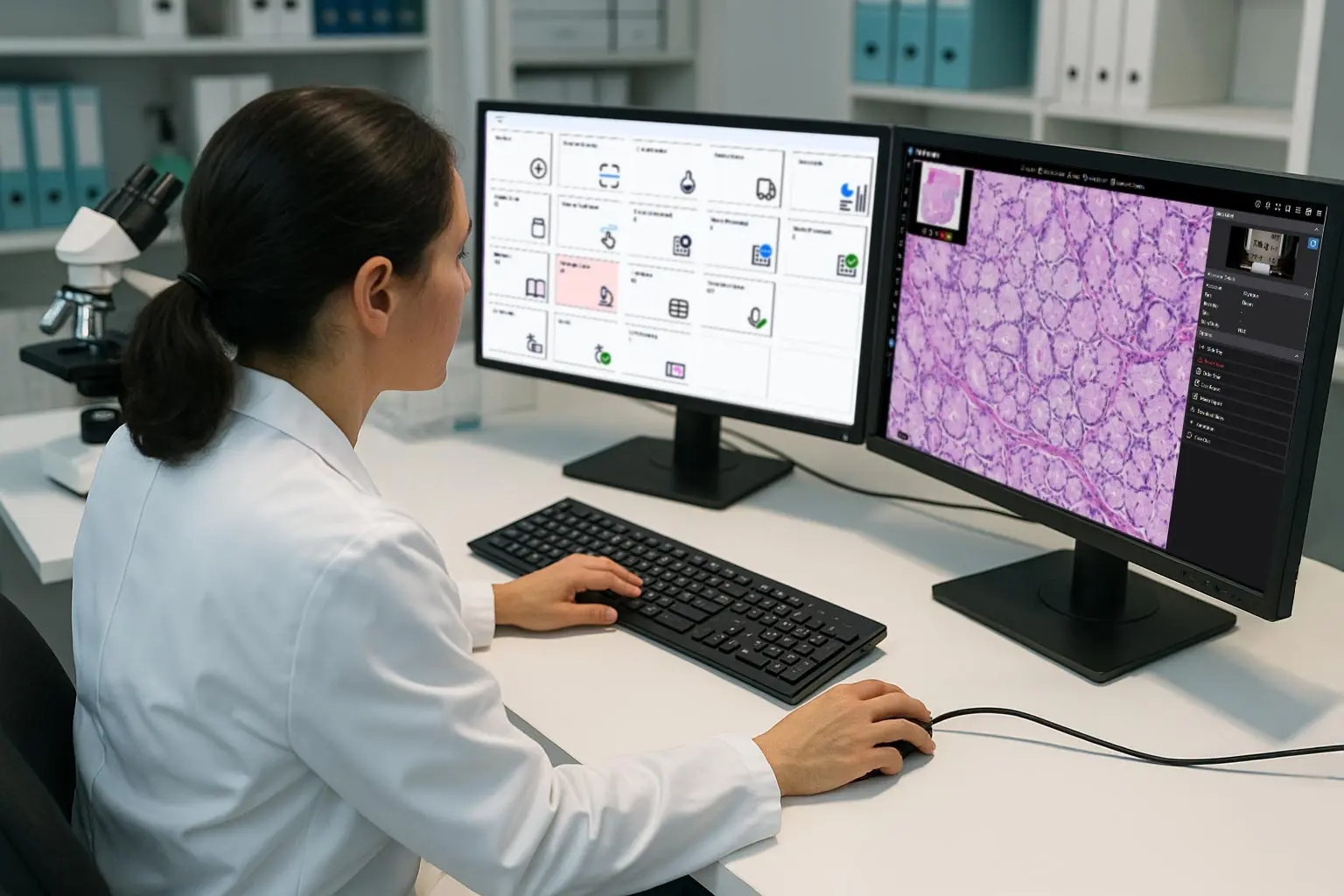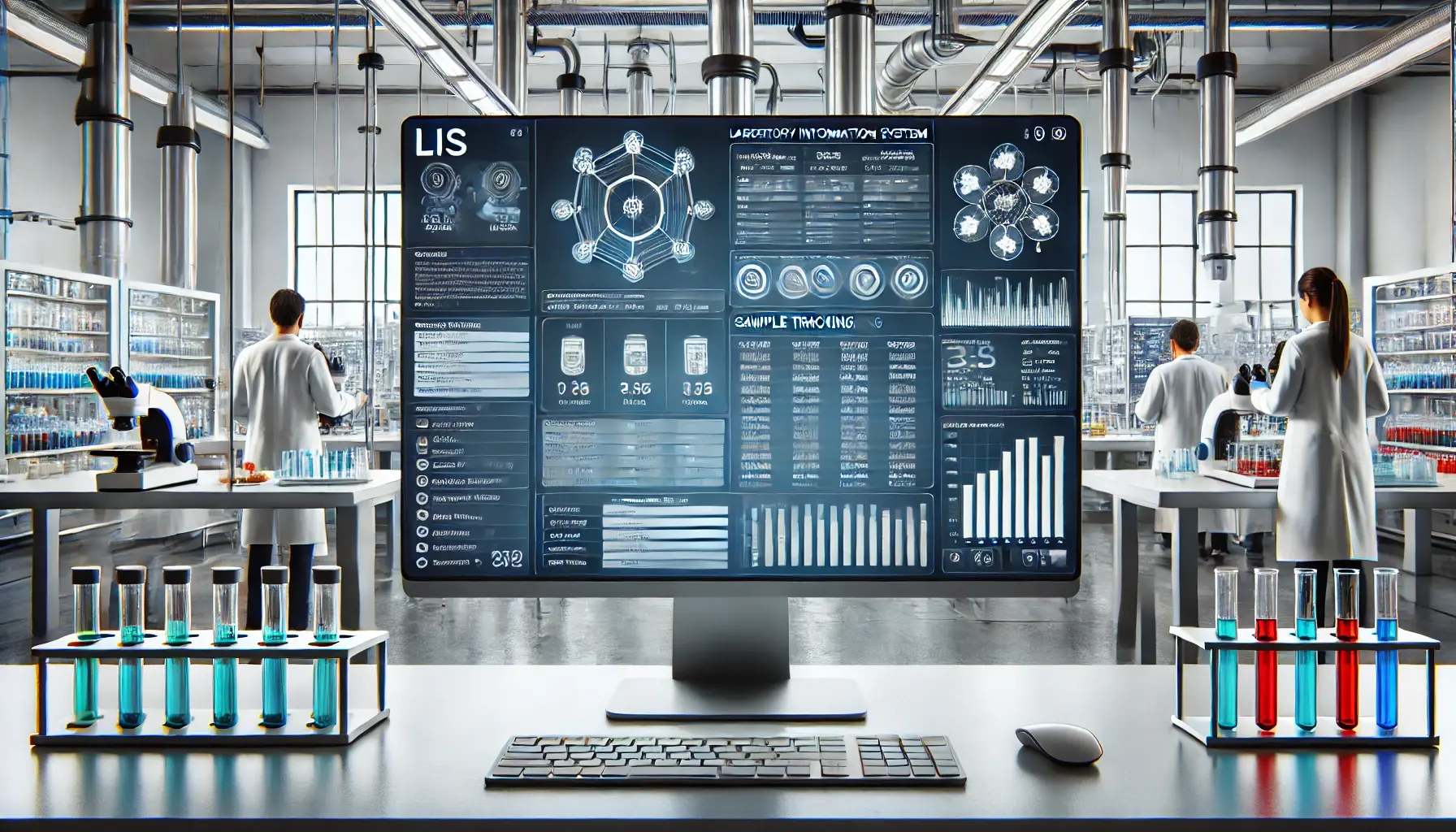Blog
Keys to Providing Premier Pathology Client Services: How Advanced Laboratory Information Systems Set the Standard
October 27, 2025
In the highly connected world of pathology, exceptional client service is the cornerstone of lasting success. Clinical laboratories and pathology practices that consistently deliver accurate, timely, and meaningful results, while maintaining strong, collaborative relationships with their clinical and hospital partners, set themselves apart as true leaders in diagnostic excellence. These organizations understand that premier client service goes far beyond meeting expectations by anticipating client needs, fostering transparency, and serving as a true partner and extension of the care team.
At the heart of this elevated service standard lies technology, specifically, modern laboratory information systems (LIS software) that unify data, automate workflows, and enable seamless communication. Laboratories that invest in the best laboratory information system software gain a powerful advantage: the ability to provide clients with reliability, responsiveness, and insight at every step of the diagnostic process.
White Paper: What You Need to Know Before Contracting with a Laboratory Information System Company
Redefining Client Service and Pathology Lab Management
Providing premier client services as a key part of effective pathology lab management encompasses transparent communication, consistency, accuracy, intuitive ordering processes, flexible reporting, and data accessibility. Pathologists and laboratory department leaders must anticipate and exceed expectations, ensuring clinicians have the right information, in the right format, at the right time to support better patient outcomes.
The days when “good enough” service meant providing a faxed report or a phone consultation are long gone. Today, physicians, hospitals, and even patients expect laboratories to operate as trusted partners in care delivery, offering secure connectivity, seamless interoperability, and real-time insight into testing operations.
That’s where advanced laboratory information system software comes in.
Discover More: Is Your Laboratory Information System Able to Support the Latest LIS System Technology?
The Role of Modern Laboratory Information Systems in Client Success
A modern laboratory information system (medical LIS) serves as the central nervous system of the laboratory, orchestrating every step from specimen accessioning to result reporting and laboratory billing. For pathology groups and diagnostic laboratories striving to deliver premier service, modern pathology LIS systems provide a unified digital foundation that connects all departments while integrating seamlessly with external stakeholders like hospitals, electronic health records (EHRs), and clients.
When designed and implemented correctly, an advanced LIS software platform becomes a powerful engine of action for client satisfaction, enabling laboratories to operate with unmatched speed, precision, and transparency.
Below are the key elements that define a truly client-centric lab information system.
Discover More: Best LIS Software - Maximize Growth With Cutting Edge Pathology Lab Management Software

1. Seamless Order Entry and Result Delivery
Pathology client service begins the moment an order is placed. A premier LIS lab platform simplifies this process with:
- Intuitive order entry via an online portal or EHR interface, minimizing data entry errors.
- Barcode-driven accessioning that ensures every specimen is traceable from receipt to report.
- Automated verification rules that flag incomplete orders or mismatched data in real-time.
Once testing is complete, a modern LIS system automatically routes results back to clients through their preferred channels, such as secure web portals, HL7 interfaces, direct EHR connections, or even automated fax and email delivery, where applicable. The key is flexibility: the best LIS adapts to each client’s workflow, not the other way around.
Result reports are another area where the best laboratory information systems make a direct impact on service quality. Customizable templates allow laboratories to tailor the presentation of data, from surgical pathology reports with embedded images to concise summaries optimized for referring physicians. This ensures that each client receives clear, actionable information, improving diagnostic collaboration and satisfaction.
Discover More: Streamline Laboratory Workflow Management With Customized Lab Reports & Unmatched Client Support
2. Integrated Communication and Transparency
Exceptional client service relies on clear communication, and modern laboratory information systems make that seamless and simplified.
Features like real-time status tracking, case comments, and automated notifications keep clients informed at every stage of the testing process. Rather than calling the lab to ask, “Has my case been signed out yet?” physicians can log in to a secure portal and instantly view updates.
Some advanced LIS software solutions also integrate secure messaging capabilities, allowing pathologists and clinicians to collaborate directly within the system. These built-in communication tools eliminate phone tag and improve documentation, ensuring that all correspondence is captured in the case record.
Transparency builds trust, and trust is the foundation of lasting client relationships. A laboratory information system that offers real-time visibility into case progress, turnaround times, and historical performance data enables clients to see the lab’s commitment to quality and responsiveness firsthand.
Discover More: LigoLab’s Provider Portal Facilitates Faster Order Processing and Improved Turnaround Times
3. Automation That Enhances Accuracy and Speed
The most effective way to enhance client satisfaction is to consistently deliver accurate results faster. Advanced LIS software automates routine tasks that were once manual, freeing staff to focus on high-value work while still successfully managing a constantly growing case load.
Modern LIS system automation capabilities can include:
- Auto-verification rules that release normal results without manual intervention.
- Automated case assignment for pathologists based on workload or subspecialty.
- Speech-to-text and structured templates that streamline dictation and reporting.
- AI-powered OCR scanning that extracts data from requisitions and reduces entry errors.
By automating repetitive steps, medical laboratories accelerate turnaround times and also reduce the potential for human error, a dual win that translates directly into higher client satisfaction and better patient care.
Discover More: How Advanced LIS Software Helps Pathologists Sign Out Anatomic Pathology Cases Faster
4. Comprehensive Specimen Tracking and Chain of Custody
Accuracy begins with specimen integrity. A modern laboratory information system ensures complete traceability through every step, from collection and transport to processing and final diagnosis.
With advanced barcode scanning and real-time status updates, laboratory staff can instantly locate any specimen and verify its chain of custody. Clients, too, benefit from this visibility, as they can track specimens in real time and receive alerts if delays occur.
This level of traceability is critical for compliance and also a hallmark of premier service, giving clients confidence that every sample is handled with precision and accountability.
Discover More: LigoLab’s Professional Tier: A Powerful Laboratory Information System Solution for Growing Laboratories
5. Business Intelligence and Client Reporting
Top-tier laboratories know that strong client relationships are built on data-driven insights. That’s why the best laboratory information system companies have engineered platforms with embedded dashboards and analytics tools that enable both labs and clients to monitor key metrics such as case volumes, error rates, and referral patterns.
By sharing these insights proactively, labs demonstrate transparency and a genuine interest in helping their clients improve their own operational efficiency and patient outcomes.
For example, a pathology group might use LIS-generated reports to show a hospital client how test volumes correlate with specific clinical programs, or to highlight opportunities for improved specimen handling or order accuracy. This consultative approach strengthens partnerships and positions the laboratory as a strategic ally rather than just a service provider.
Industry Insights: Business Success Through Advanced Laboratory Information System Technology - Connecting All The Pieces
6. Interoperability with EHRs and Digital Pathology Systems
In an era of connected healthcare, interoperability is now a client expectation. The best LIS systems offer robust integration capabilities that allow medical laboratories to connect seamlessly with hospital EHRs, practice management systems, digital pathology platforms, and lab billing software.
For anatomic pathology labs in particular, interoperability with digital pathology viewers and image management systems (such as PathPresenter, Proscia, or Lumea) is transforming workflows. Pathologists can now access whole-slide images directly from within the LIS environment, view case data side-by-side with digital images, and even leverage AI algorithms to assist in diagnosis.
This level of integration accelerates the diagnostic process and enhances collaboration between pathologists and clinicians, driving superior service and outcomes.
Discover More: LigoLab and PathPresenter Announce Strategic Partnership to Deliver Seamless Digital Pathology Workflows
7. Secure Client Access and Data Sharing
Advanced laboratory information systems provide secure, HIPAA-compliant client access to patient reports, images, and analytics. Multi-factor authentication, role-based permissions, and encrypted data transmission ensure that sensitive information remains protected while still being easily accessible to authorized users.
Premier client service means providing convenience without compromise. Laboratories that offer 24/7 secure portals enable clients to view results, download reports, and communicate with lab staff whenever needed, and all within a controlled environment that safeguards patient data.
Case Study: From Launch to Lift-Off - Highlighting Goldfinch Laboratory’s Formula for Rapid Growth
8. Integrated Laboratory Billing Solutions and Financial Transparency
Premier client service goes beyond clinical excellence; it also requires financial transparency. For example, with a fully integrated laboratory information system and lab revenue cycle management (lab RCM) solution, pathology labs can oversee both operations and billing seamlessly within a single platform.
By linking diagnostic data with laboratory billing workflows, labs can:
- Auto-generate CPT and ICD-10 codes directly from the LIS module data.
- Validate insurance and eligibility in real time.
- Eliminate duplicate entries between the LIS and billing systems.
- Track collections, denials, and payments transparently.
Clients appreciate the professionalism and accuracy that come with a unified laboratory billing process. It reduces confusion, shortens revenue cycles, and allows the lab to respond quickly to any client inquiries regarding invoices or charges.
On-Demand Webinar: Unifying Technical and Financial Operations to Minimize Denials and Prevent Revenue Leakage

9. Flexibility and Customization
No two pathology clients are exactly alike, and neither are their business requirements. A premier LIS software solution allows for flexible configuration, enabling labs to tailor workflows, reporting formats, and communication preferences for each client or department.
From color-coded dashboards and customizable result templates to specialized workflows for dermatopathology, cytology, or molecular diagnostics, adaptability is a key ingredient in delivering exceptional service.
Customization ensures that each client interaction feels personal, efficient, and aligned with how they practice medicine, thereby fostering loyalty and long-term partnerships.
Discover More: Six Factors That Should Be Considered Before Upgrading Your Lab's Pathology Reporting Software
10. Continuous Improvement Through Feedback and Analytics
Premier service is never static; it evolves to meet client needs. Advanced laboratory information system software provides the analytics and feedback mechanisms necessary for continuous improvement.
By tracking performance metrics, monitoring client satisfaction, and using built-in tools for quality control and audit management, medical laboratories can proactively identify and resolve issues before they escalate.
Periodic performance reviews, supported by LIS-generated data, also help strengthen client relationships. When a lab can present objective metrics demonstrating faster turnaround times or reduced error rates, it reinforces confidence and the lab’s value proposition.
Discover More: A Detailed Look at How Modern Laboratory Information Systems Fully Support Quality Control
The Competitive Edge of a Unified Medical LIS + Lab RCM Platform
In many pathology organizations, the laboratory information system and billing system are still separate, creating data silos, delays, and inefficiencies that erode service quality. By contrast, laboratories using a unified medical LIS + lab RCM platform benefit from a single source of truth across both operational and financial workflows.
This integration ensures that every case is tracked from order to payment, with complete visibility into testing, reporting, and revenue outcomes. The result is fewer errors, faster reimbursement, and more time for client-focused initiatives.
When a laboratory eliminates fragmentation, it can focus on what truly matters: building relationships, delivering insights, and providing a level of service that clients can’t find anywhere else.
Industry Insights: From System of Record to System of Action - The Next Evolution of Laboratory Information Systems
Conclusion: Elevating Pathology Through LIS System Technology and Partnership
In the competitive world of diagnostic medicine, client service is the ultimate differentiator. Pathology laboratories that invest in advanced laboratory information systems position themselves not only as preferred testing providers but as strategic partners in patient care.
By embracing automation, interoperability, real-time communication, and unified data management, these laboratories achieve operational excellence while delivering an exceptional client experience.
At the heart of premier pathology client service lies a simple truth: when technology works seamlessly, lab personnel can focus on what they do best, and that’s diagnosing disease, advancing medicine, and serving patients. Modern LIS software makes that possible, empowering laboratories to elevate their service and strengthen client relationships.
Ready to redefine client service excellence?
See how advanced LIS system technology empowers pathology labs to deliver accuracy, transparency, and partnership at every step.







